
On May 22, basking in the fragrance of early summer, the Beijing Kaiwen Academy (KWA) primary school students went to the Beijing Confucius Temple and Guozijian Museum to trace China’s long history, understand the Confucian culture, and experience the charm of classic Chinese studies.
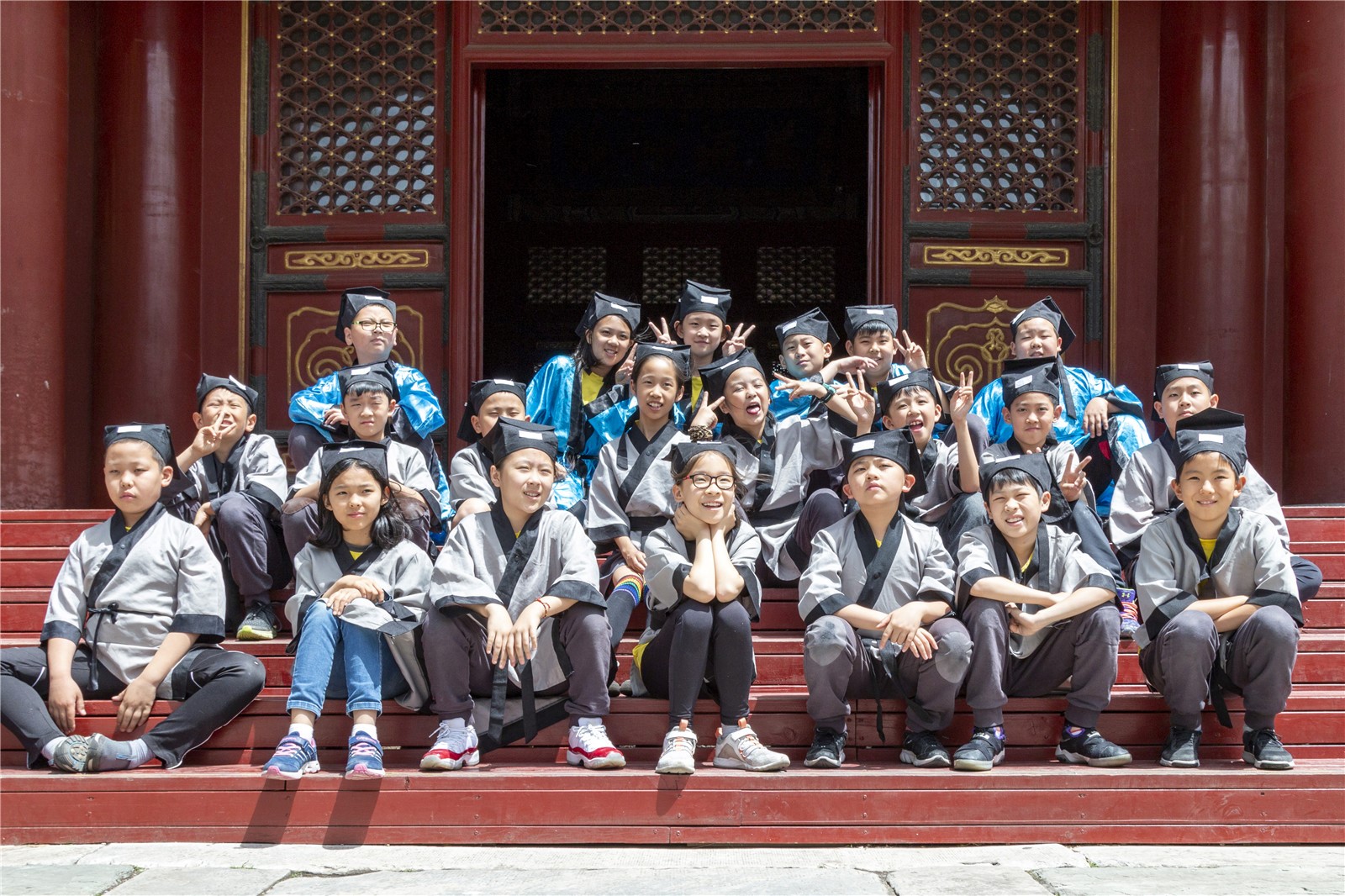
The students arrived at Guozijian Street Archway at 9:00 a.m. They then followed the narrator into the museum. The museum was packed with students from other schools that day. KWA students strictly followed the guidance of teachers and the narrator and patiently waited in line for their turn, which won praise from the museum staff.
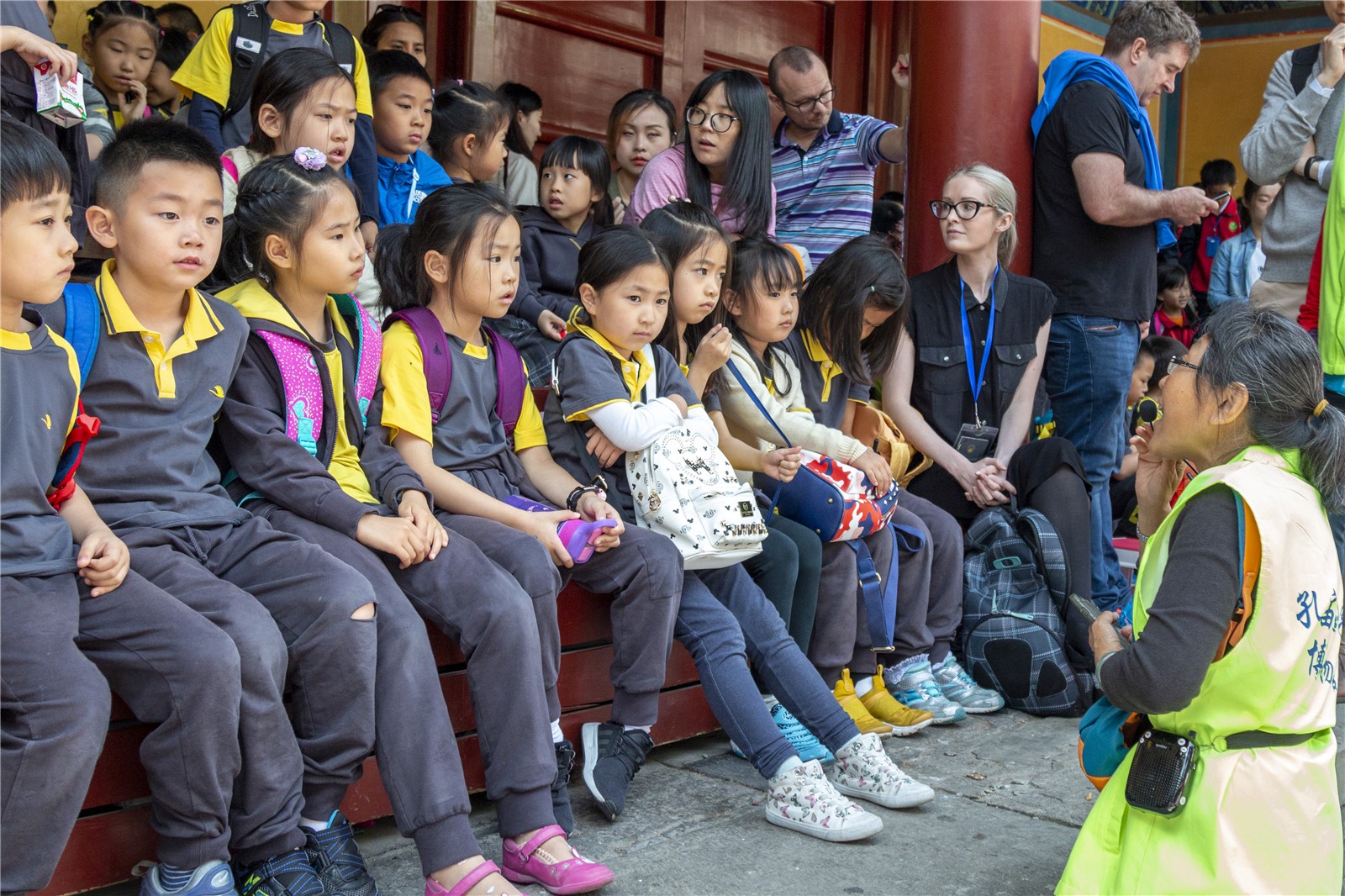
Upon passing Ancient Teachers Gate, the students were greeted by a tablet forest. The narrator explained to them that in the Yuan, Ming, and Qing dynasties, a scholar would set up a stone tablet here if he/she passed the provincial civil service examination. So the tablet forest had the meaning of “become famous overnight once you pass the provincial civil service examination.” After entering the center of the Confucius Temple through Dacheng Gate, the students visited Dacheng Hall. There they learned about the architectural hierarchy of China’s feudal society and tips on how to grade an ancient building.
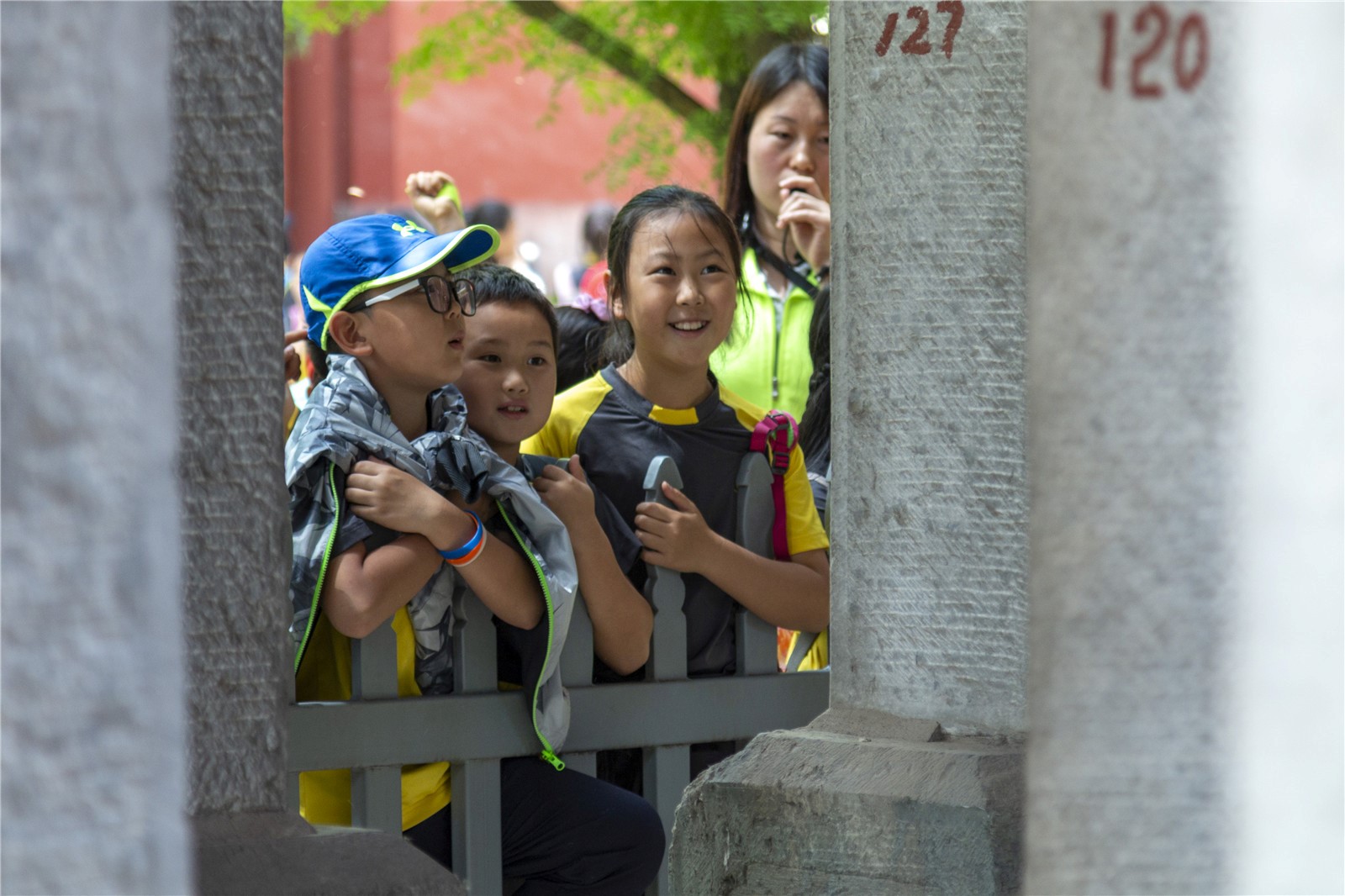
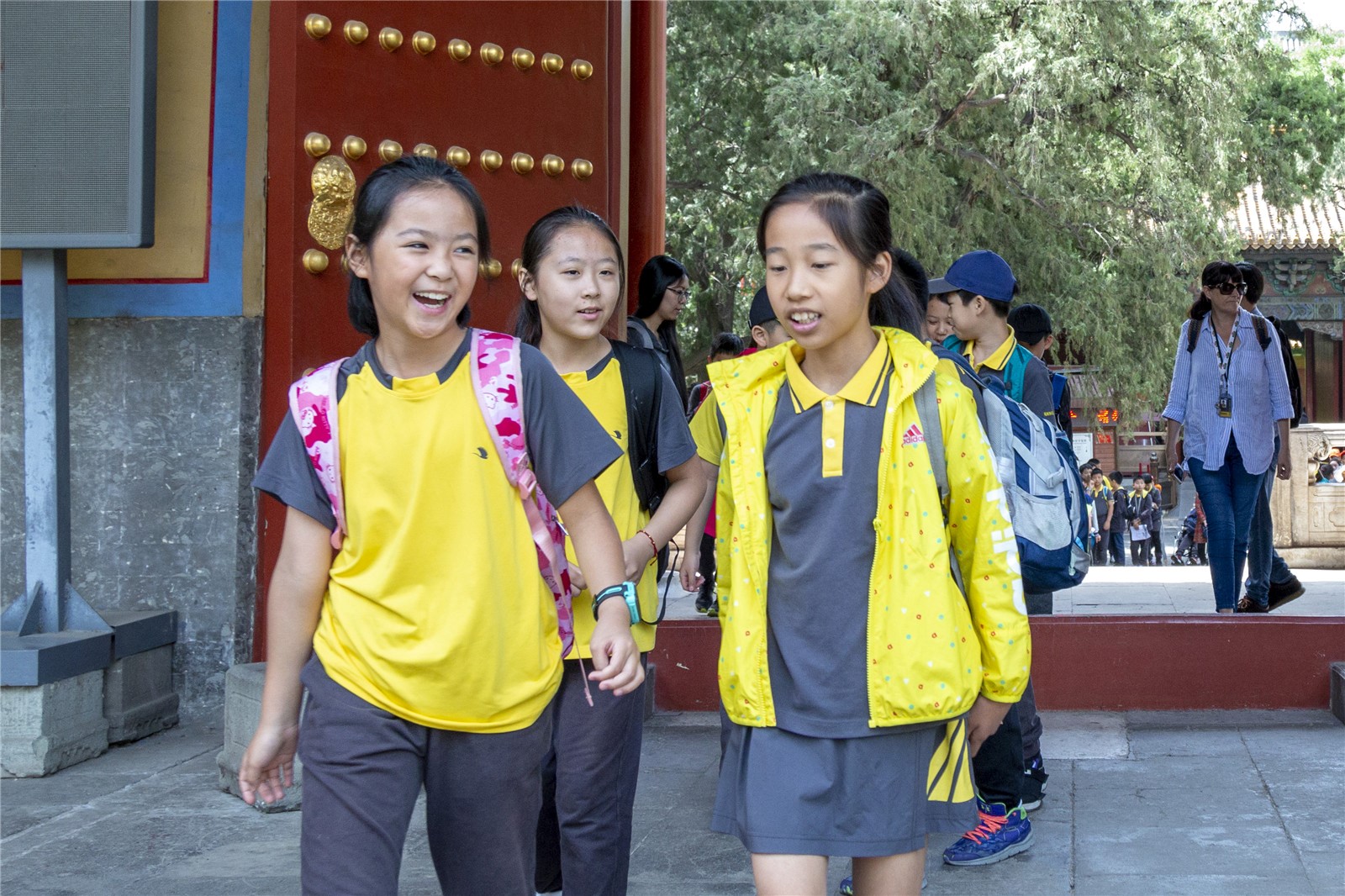
The visit to Chongsheng Temple, which was built as a memorial to five generations of Confucius’s ancestors, enabled the students to have a basic understanding of China’s ancient royal sacrificial rituals. The students then entered the Guozijian (Imperial Academy), and visited the Colored Glaze Archway—which is the only one in Beijing set up especially for education—and Jingyi Pavilion—which served as offices for officials of the ancient Imperial schools and Guozijian. Through the visit, they understood the students’ daily learning life, attendance systems, the Imperial examination system, and the official selection systems in ancient times.
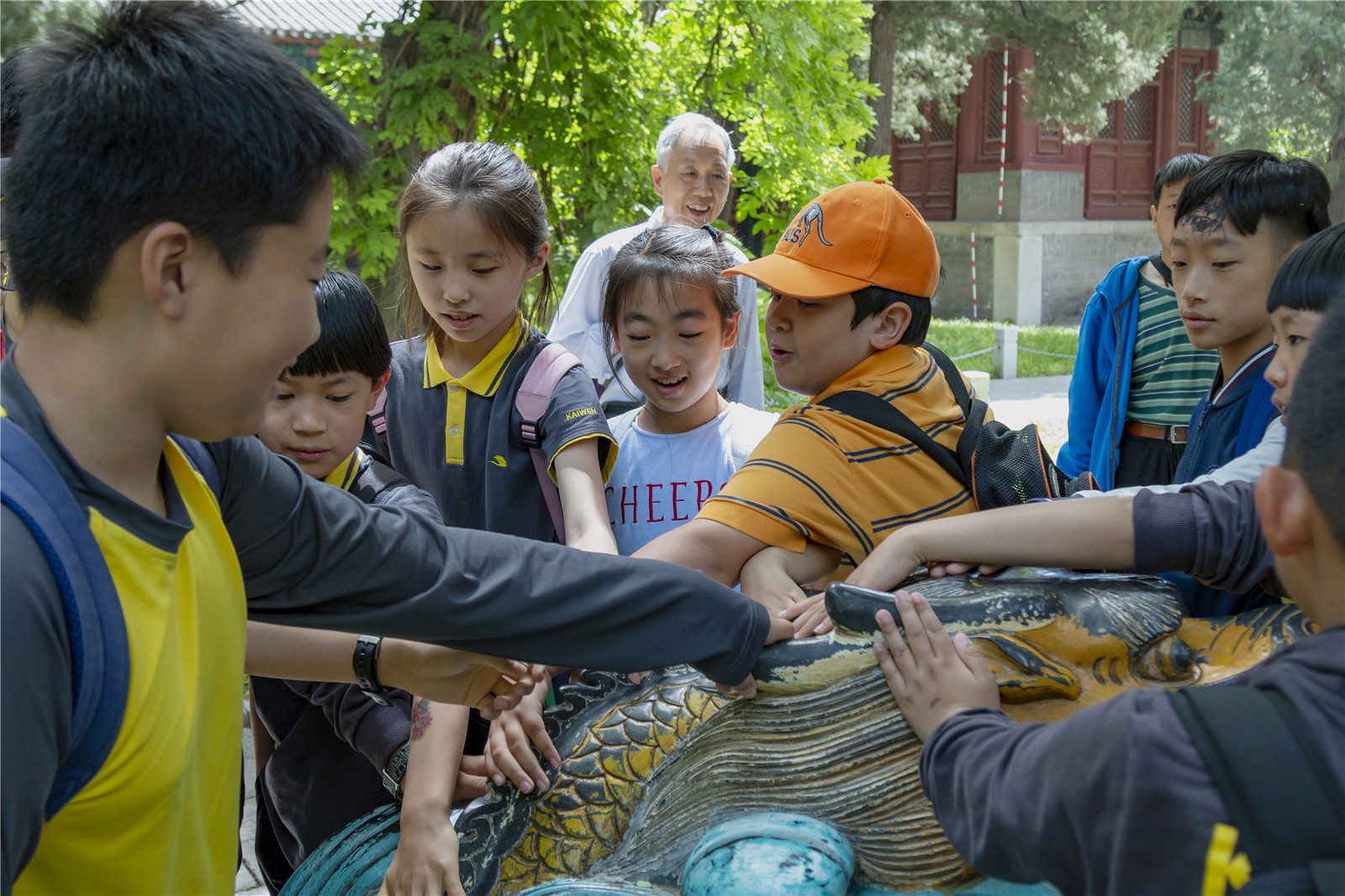
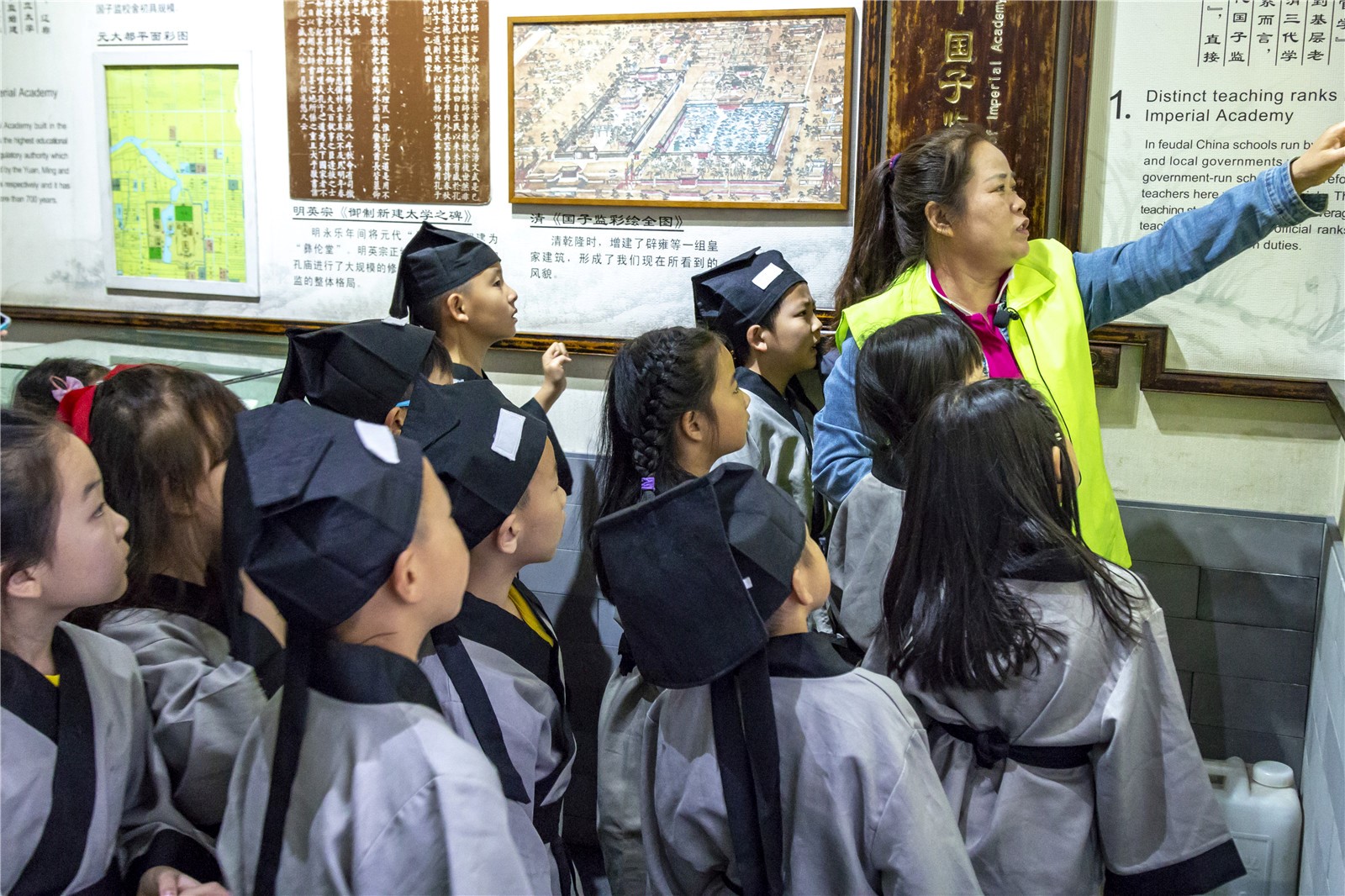
A Chinese culture experience activity was arranged on this trip to allow the students a personal experience of Confucianism and traditional Chinese culture. The students, dressed in Han Chinese costumes and wearing crowns, solemnly attended an ancient ritual. First, the students were required dress up to show respect for the ancient sage. The teachers then made a red spot between the students’ eyebrows to initiate their intelligence. After the students had read the Ti Tzu Kui (Disciple Rules), they were asked to write a huge Chinese character—“人” (human being)—in regular strokes. At the end, the students saluted Confucius and their teachers as a token of respect and gratitude.
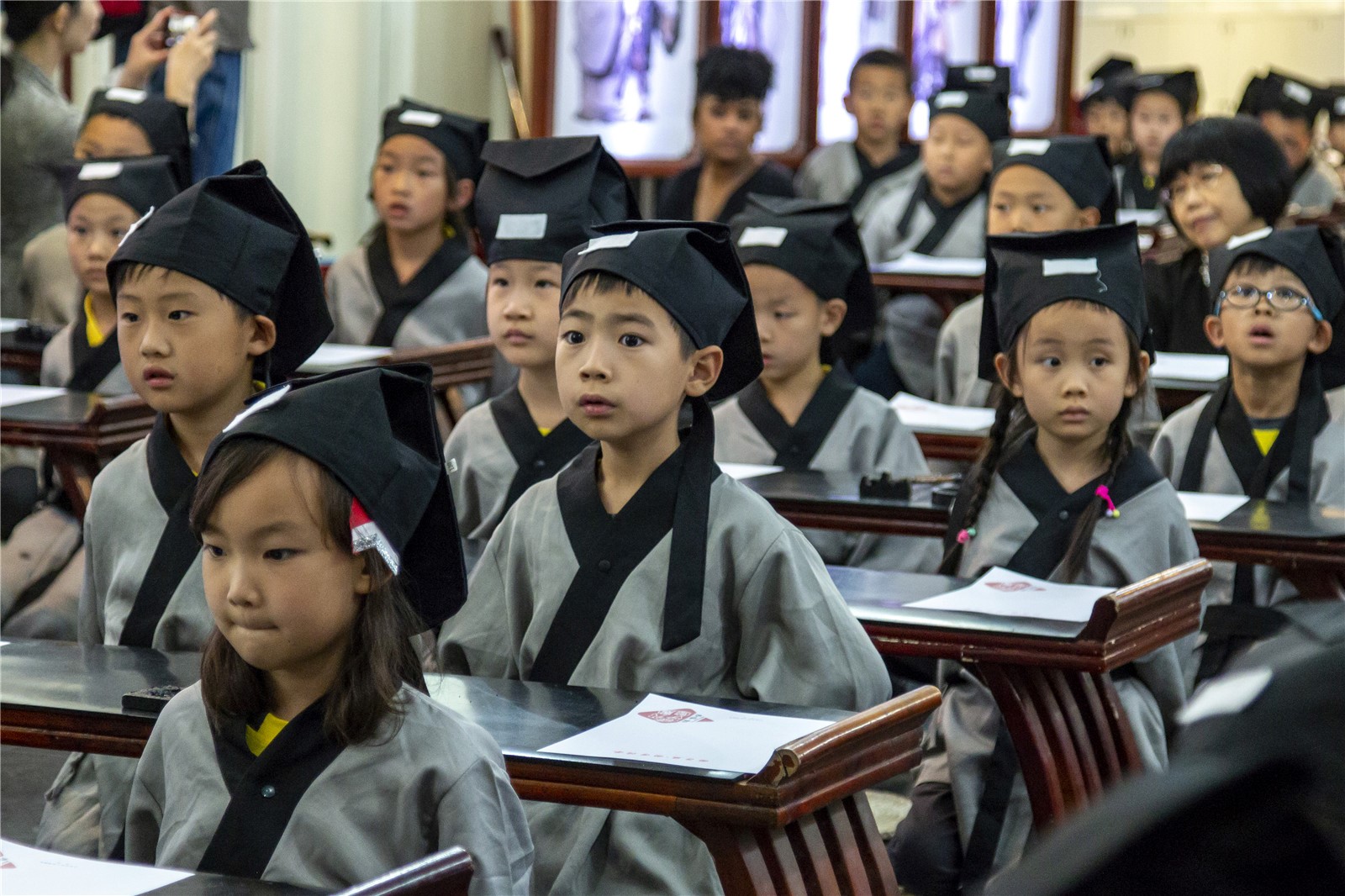
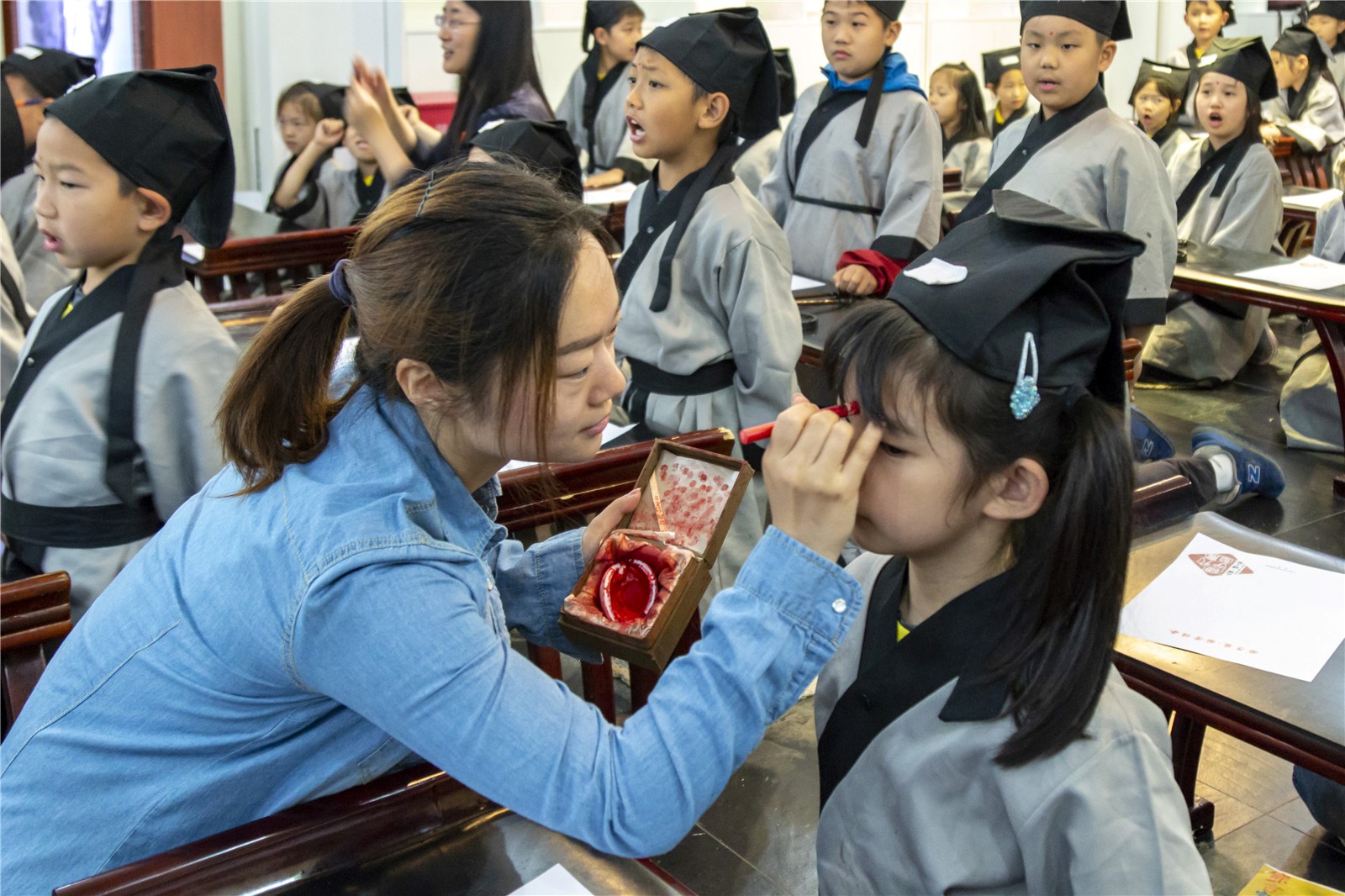
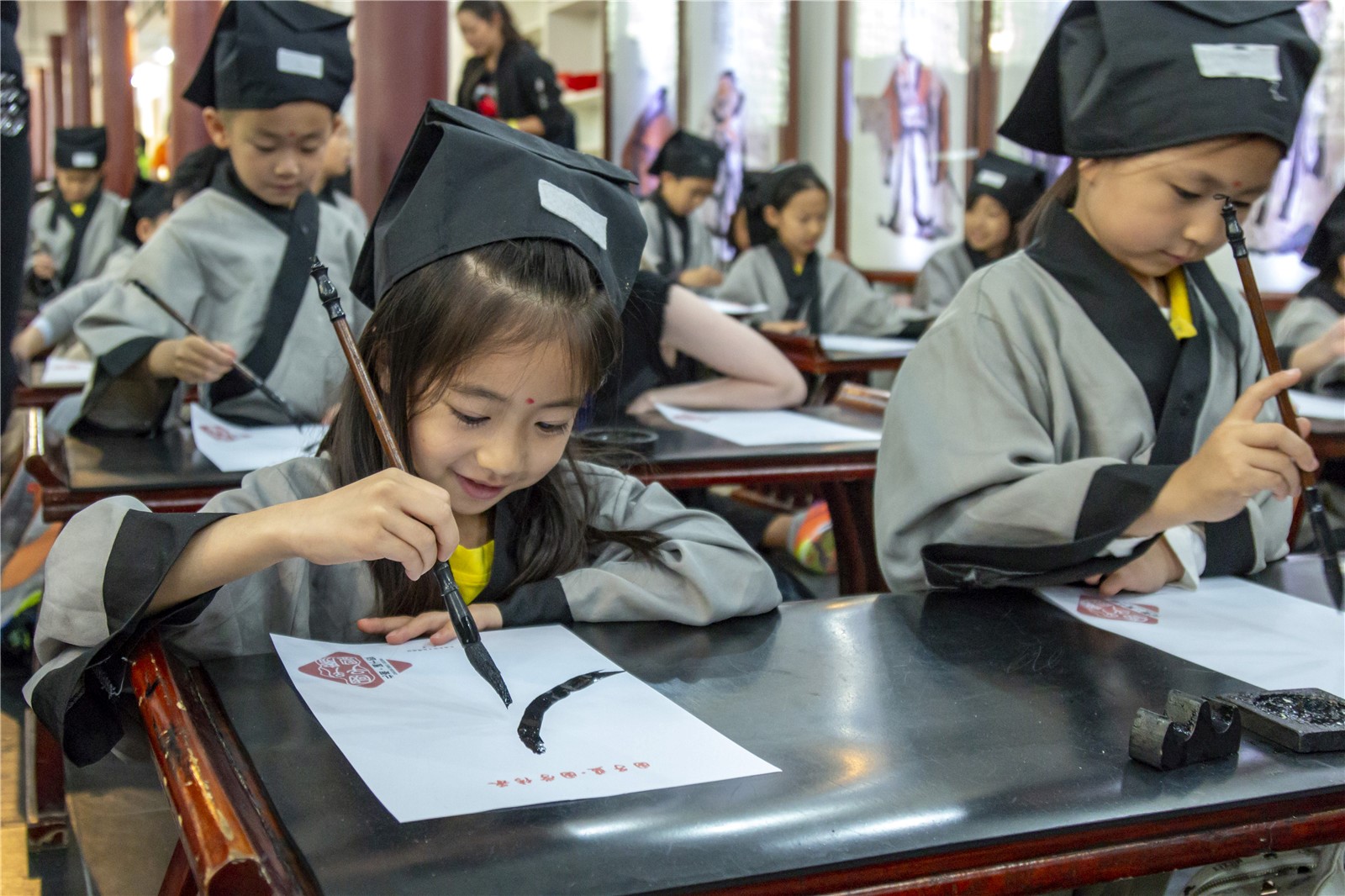
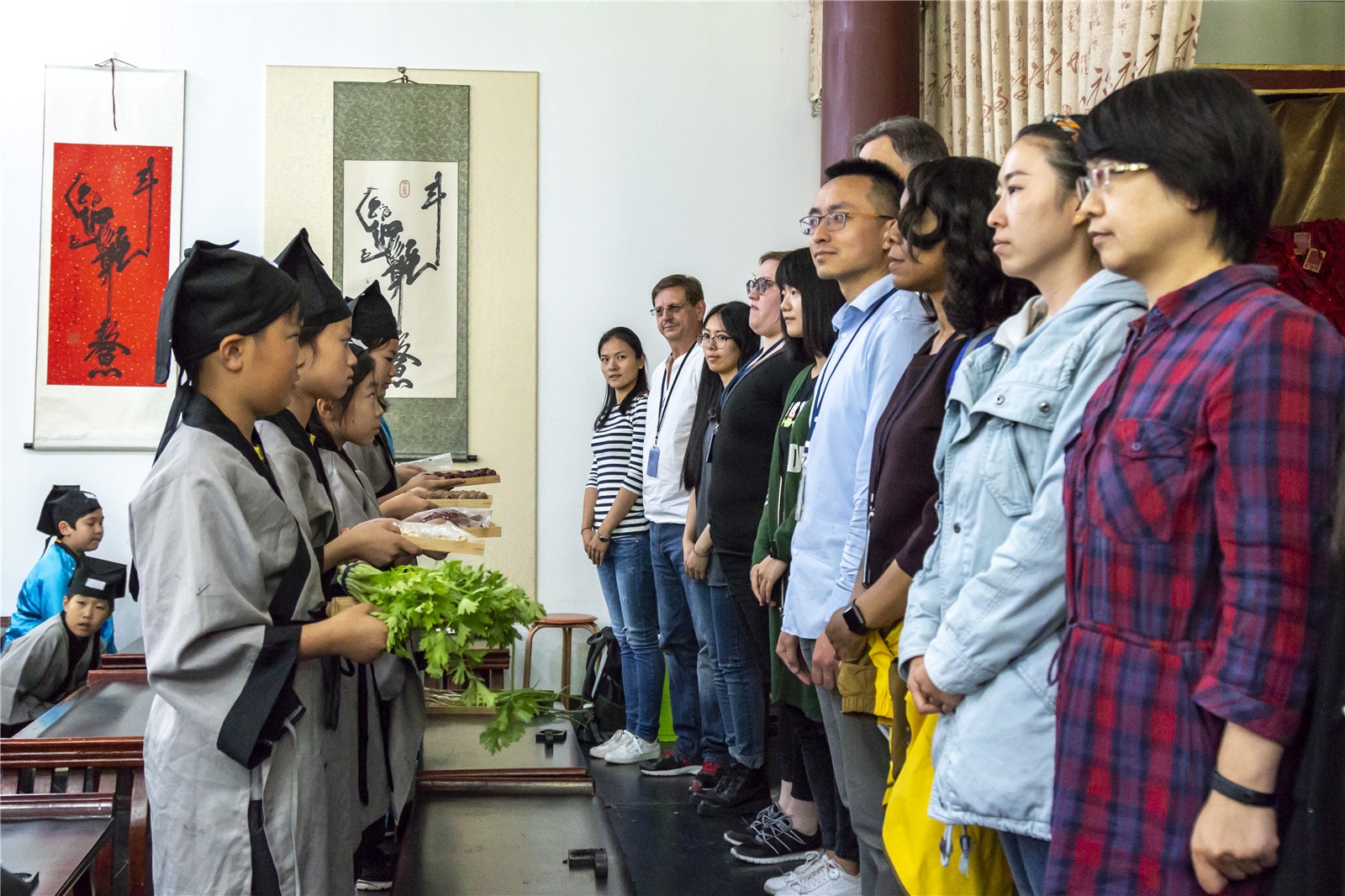
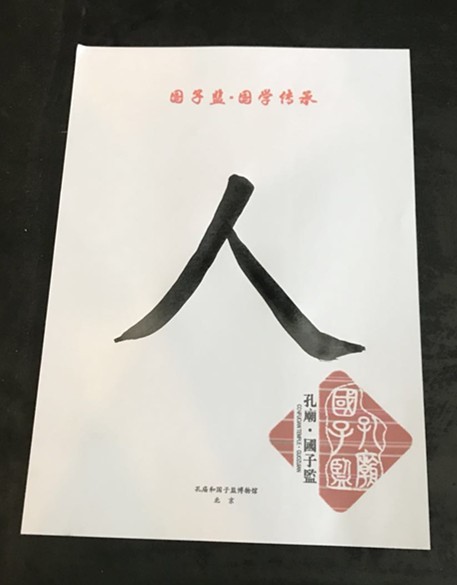
The Chinese character “人” written by Zhang Borong of Class 3, Grade 2.
To improve the students’ learning efficiency, Chinese teachers at KWA primary school made a Comprehensive Practice Manual for students to record what they had learned on the trip. Such activities have not only allowed the students to comprehend the beauty of Chinese culture, but also made them understand the significance of respecting teachers. The students all said that they had learned a lot through the trip.
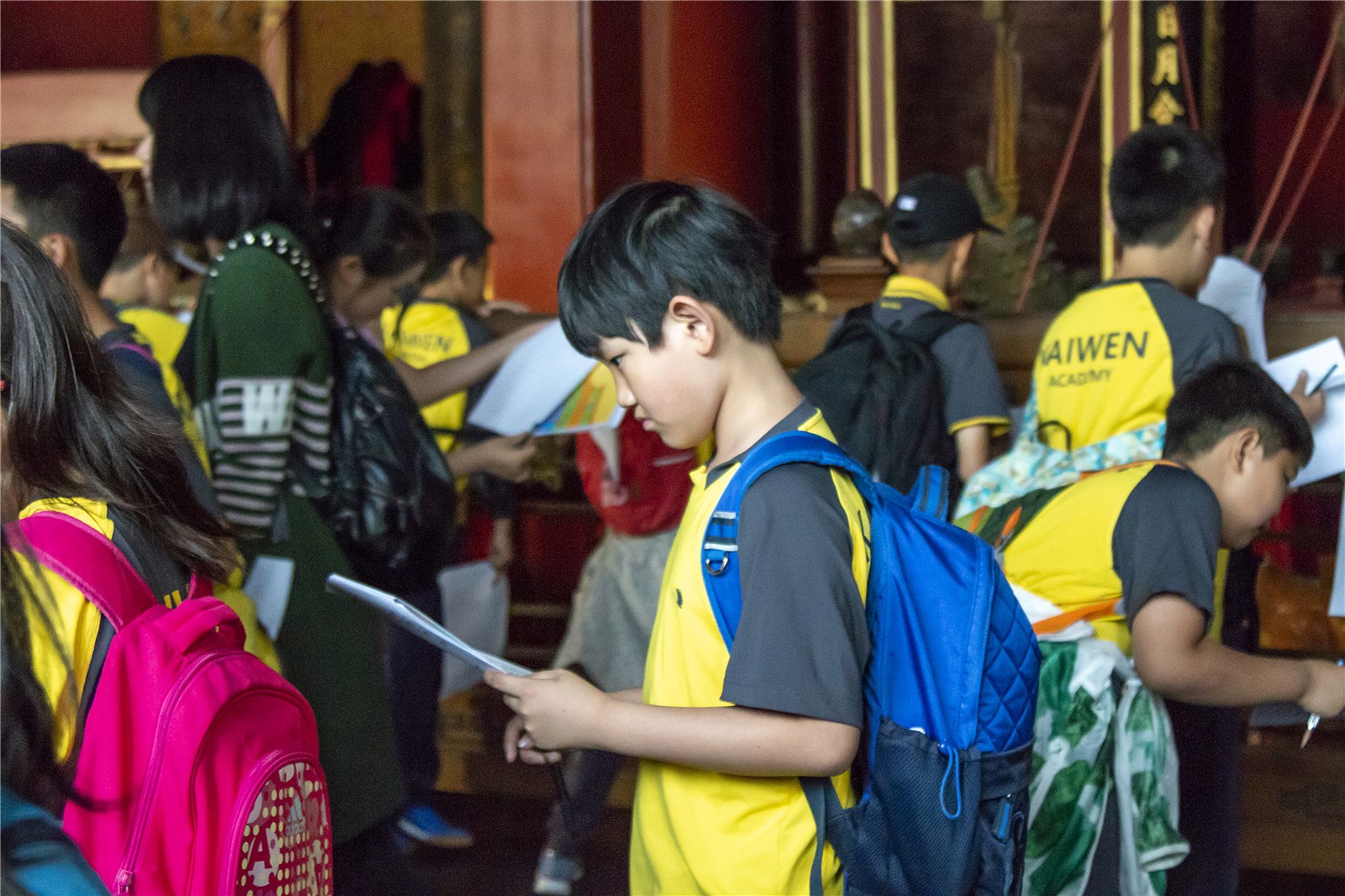
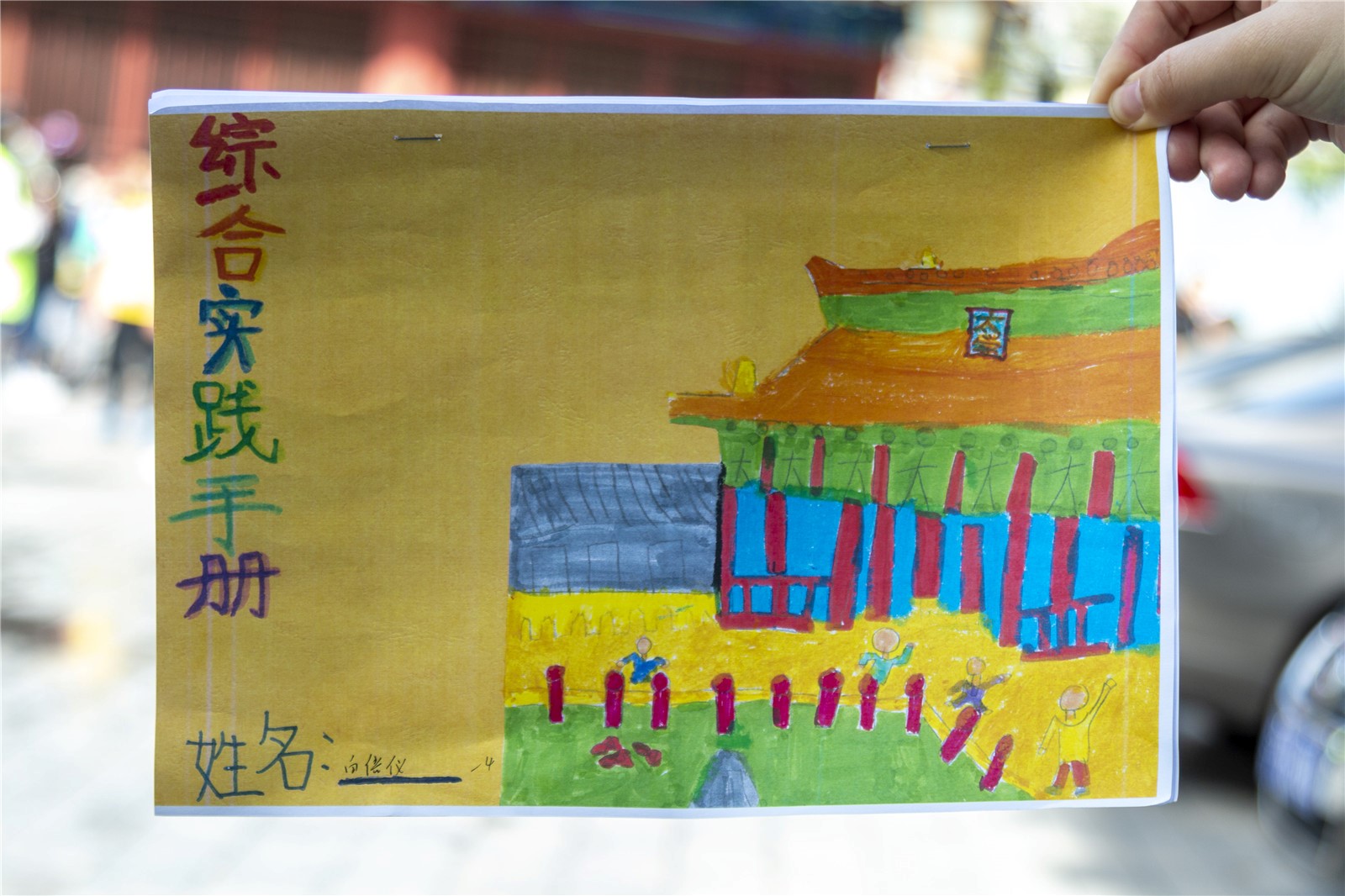
The cover of the Comprehensive Practice Manual was designed by Wang Weiyi of Class 3, Grade 1.
KWA values Chinese education and the study of Chinese traditional culture. The school has worked hard to consolidate its students’ Chinese roots. The school has fervently practiced its educational philosophy that combines Chinese and Western cultures and places equal emphasis on arts and science education. In the future, we will explore more educational modes to combine book knowledge and practice so that our students can feel the historical pulse and experience the profoundness of traditional Chinese culture.